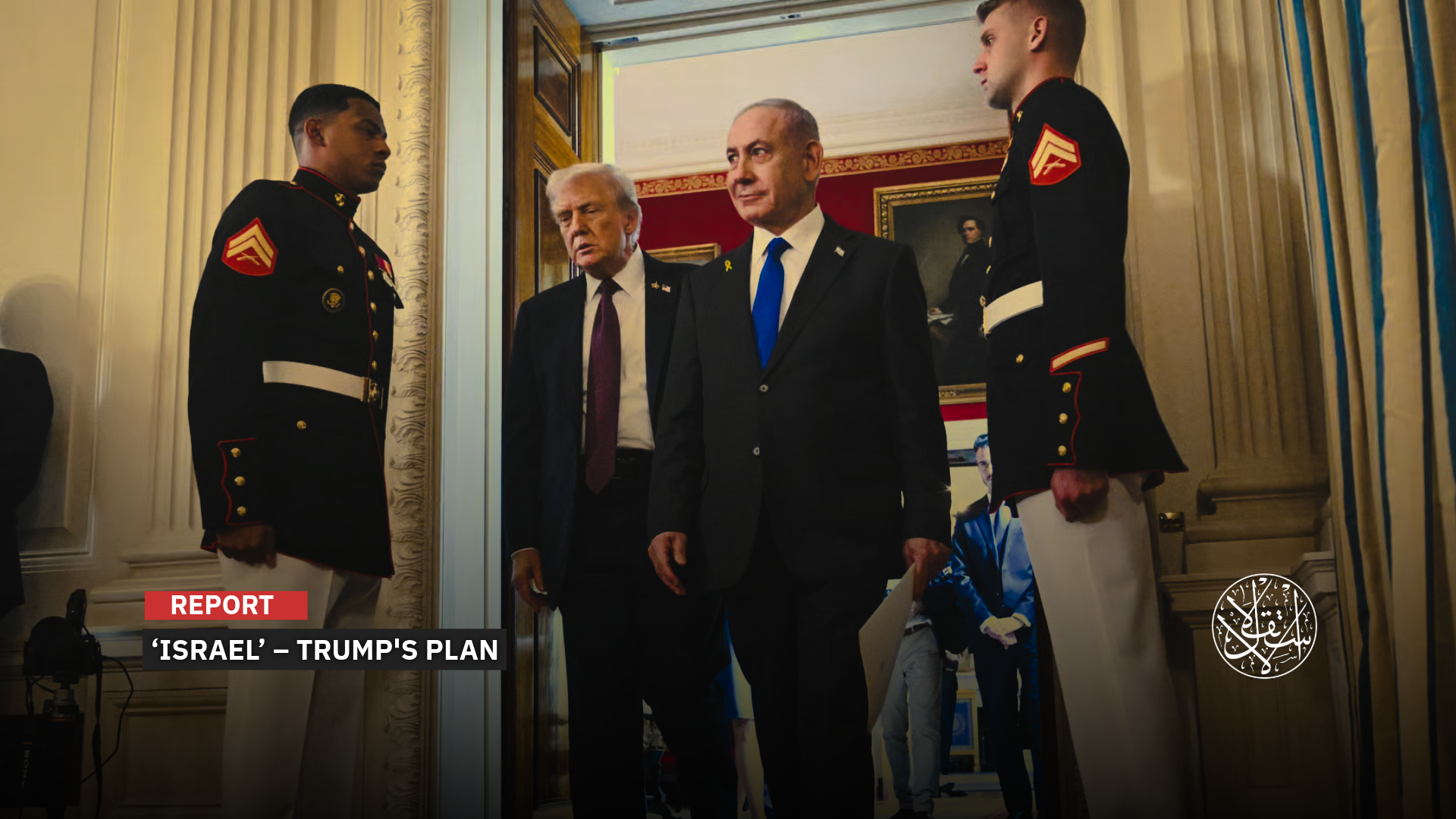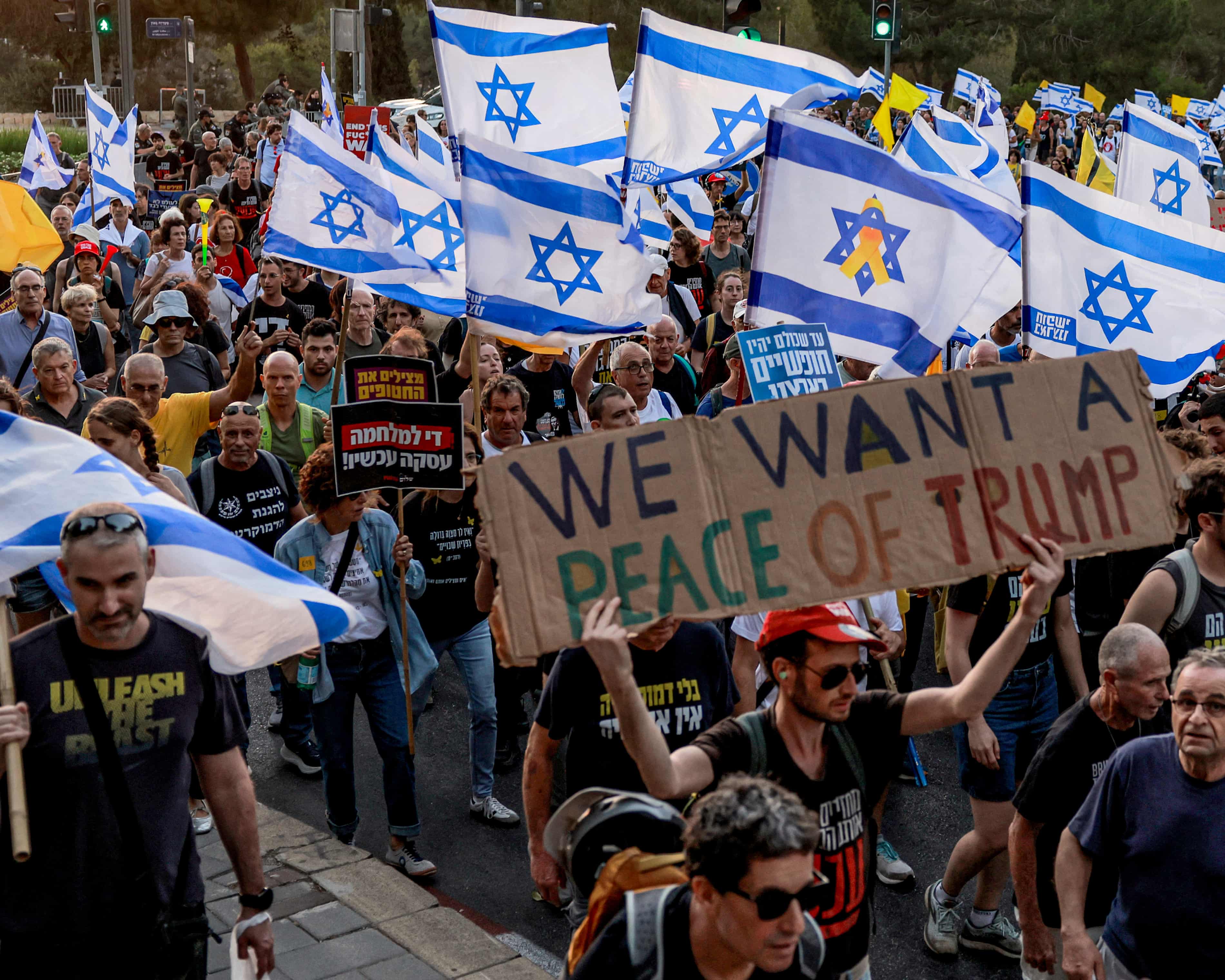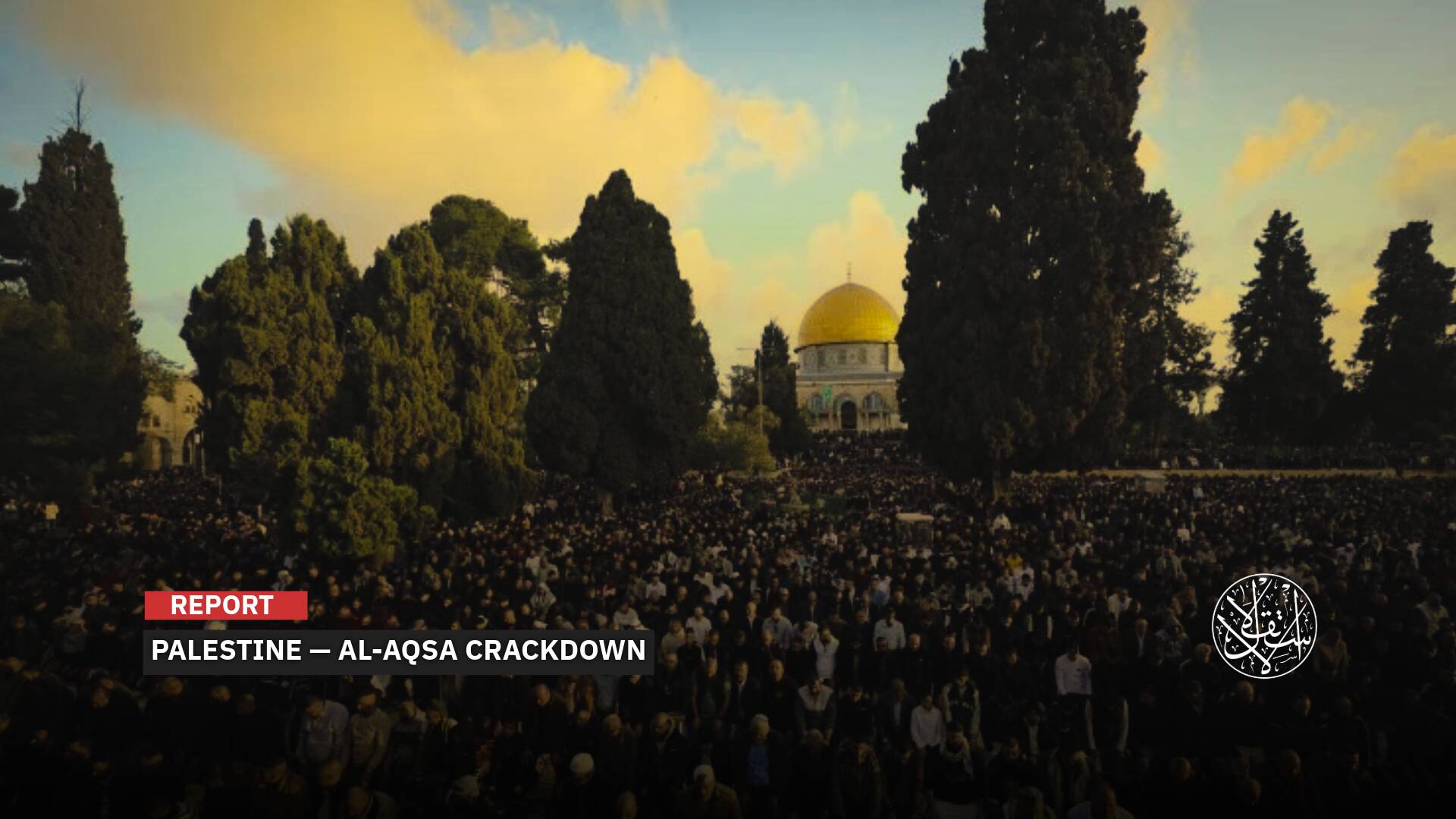Can Trump Impose Through Peace What 'Israel' Failed to Impose by Force?

“Analysts worry that Trump’s plan will further divide Gaza from the occupied West Bank.”
US President Donald Trump claimed that the ongoing discussions regarding his plan to end the war in the Gaza Strip were progressing very well, on the eve of his meeting with Israeli Prime Minister Benjamin Netanyahu at the White House on September 29.
Trump's 20-point plan to end the war is no longer just a proposal on the table; it has become a battleground for diplomatic and political maneuvering.
Israeli ambitions clash with US pressure and Arab alliances, while Hamas and the international community watch every move with extreme caution.
For his part, Netanyahu announced his support for Trump's plan to end the war in Gaza, describing it as a decisive step towards ending the war and achieving peace in the Middle East.
However, he emphasized that “Israel” would maintain a security perimeter to ensure stability in Gaza and deter any potential threat.
Trump's new plan has sparked widespread debate about the US's unconditional support for “Israel” and its double standards regarding the Palestinian Cause.
Peace Plan
On September 30, the White House officially announced the details of the plan proposed by US President Donald Trump to end the war in Gaza, which he presented last week during his meeting with Arab and Muslim leaders at the UN General Assembly in New York.
The plan focuses on ending military operations, disarming Hamas, releasing all Israeli prisoners in a prisoner exchange deal, and rebuilding the Gaza Strip.
It also includes establishing a transitional administration in Gaza through a Palestinian technocratic committee under the supervision of an international Peace Council chaired by Trump, with participation from figures such as former British Prime Minister Tony Blair.
The plan includes a suspension of all Israeli military operations in Gaza for 72 hours from the moment “Israel” publicly announces its acceptance of the agreement, provided that all Israeli hostages, both alive and dead, are released during that period.
Subsequently, “Israel” is required to release 250 Palestinian prisoners serving life sentences, along with 1,700 detainees from Gaza arrested after October 7, 2023, including all women and children.
While the plan includes promises that “Israel” will not occupy or annex Gaza, it does not contain any clear commitments or mechanisms for implementing a full Israeli withdrawal or for the reconstruction of the Gaza Strip.
The plan calls for the immediate disarmament of Hamas and the destruction of its military infrastructure, threatening the movement with sanctions if it rejects the agreement.
It also offers amnesty to Hamas members who surrender their weapons and agree to peaceful coexistence, and those who prefer to leave the Gaza Strip will be allowed safe passage to a destination of their choice.
According to other provisions of the plan, the U.S. will work with Arab and international partners to establish an international peacekeeping force to be deployed immediately in Gaza.
Hamas sources described Trump’s plan as unfair and unjust, arguing that it serves Israeli interests and only partially addresses Palestinian demands, if at all.
However, the sources stated that despite these reservations, Hamas will respond positively to the plan because it is keen to achieve a comprehensive agreement to end the war and hostilities.
For his part, Trump warned Hamas that it had three or four days to respond to his plan, vowing dire consequences if it rejected it.
US Special Envoy for the Middle East, Steve Wekoff, told Fox News that he was very optimistic about the chances of Trump's plan to end the war in Gaza succeeding, citing broad international support for the agreement.

Turning Point
Reactions to Trump's plan to end the Gaza war ranged from cautious welcome to outright rejection.
Some hailed it as a path to salvation, predicting that the Palestinian resistance would accept it, while others argued that it did not serve the interests of Palestinians, but rather those of Tel Aviv.
French President Emmanuel Macron welcomed the US initiative and called on “Israel” to take it seriously, emphasizing that Hamas had no other option but to immediately release all hostages and adhere to the plan.
British Prime Minister Keir Starmer expressed his full support for the plan, while Italian Prime Minister Giorgia Meloni described it as a turning point that could pave the way for a permanent ceasefire and the reconstruction of Gaza.
German Foreign Minister Johann Wadephul stated that the US plan offers a unique opportunity to end the devastating war in Gaza and brings hope to the hundreds of thousands of people suffering from an unimaginable humanitarian crisis.
Spanish Prime Minister Pedro Sanchez welcomed the plan, saying, “It is time to stop the violence, immediately release all hostages, and allow humanitarian aid to reach civilians.”
Norway stated that the success of the plan depends on Israel's response, while the Netherlands indicated that with the Trump plan, an end to the war in Gaza is now possible.
The Canadian Foreign Ministry also welcomed the Trump plan, stating that Hamas must disarm, release all hostages, and have no role in the governance of Palestine.
Qatar, Jordan, the UAE, Indonesia, Pakistan, Turkiye, Saudi Arabia, and Egypt all affirmed their readiness to cooperate with the U.S. and other international actors to ensure the plan's implementation.
Pakistani Prime Minister Shehbaz Sharif emphasized that a just peace is an essential prerequisite for regional stability.
European Council President Antonio Costa welcomed the plan and urged all parties to seize this opportunity to give peace a real chance.
UN humanitarian coordinator Tom Fletcher stated on X that Trump's plan opens new horizons for delivering essential aid to the Palestinian territories.

Foreign Tutelage
In contrast, the positions of Palestinian institutions and political factions were more reserved.
The Palestinian Authority welcomed what it described as the sincere and diligent efforts of the US President to end the war, emphasizing the importance of partnership with the U.S. in achieving peace in the region.
Meanwhile, the Islamic Jihad movement categorically rejected the proposal, describing it as an American-Israeli agreement that only reflects Tel Aviv's interests.
It warned that “Israel” is trying to impose by the U.S. what it could not achieve through war.
The Gaza Strip Government Media Office stated that the plan does not represent a genuine, objective, or fair solution.
It considered this an attempt to impose a new form of tutelage that legitimizes the Israeli occupation and deprives the Palestinian people of their national, political, and human rights.
The Palestinian National Initiative movement asserted that Trump's plan ignored the Palestinian people in all their components, and that it was presented as an ultimatum with no room for negotiation, and that it was entirely biased in favor of Israel.
It pointed out that the plan did not include recognition of the Palestinian people's right to self-determination, as acknowledged by 160 countries worldwide, but instead attempted to impose foreign colonial tutelage while allowing the continuation of the Israeli occupation and settlement activity.
It asserted that Trump's plan contains several dangerous pitfalls, each of which is capable of destabilizing the entire situation.
“Perhaps the most significant of these is the separation of the Gaza Strip from the West Bank, which achieves Netanyahu's goal of preventing the establishment of a Palestinian state,” it said.

Dangerous Deal
Trump's plan to end the conflict in the Gaza Strip has elicited mixed reactions in “Israel”. While right-wing leaders hailed the security benefits of the plan, others maintained a cautious stance, emphasizing the need to avoid any irreversible strategic concessions.
The Israeli president welcomed Trump's peace plan, stating that it holds genuine promise for the release of Israeli detainees, ensuring Israel's security, and transforming the situation in the Gaza Strip and the broader Middle East, ushering in a new era of regional and international cooperation.
For his part, Israeli opposition leader Yair Lapid, head of the Yesh Atid party, declared his support for Trump's plan, considering it the right basis for reaching an agreement on the release of the detainees and ending the war.
Beni Gantz, leader of the Blue and White party, praised Trump's announcement, emphasizing the need to implement the plan and secure the return of the detainees while maintaining the Israeli army's freedom of movement in the Palestinian Strip.
Yair Golan, leader of the opposition Democratic Movement party, welcomed the proposal, saying: “Only those who are fundamentally hostile to Israel would reject Trump's plan.”
Communications Minister and Likud party member Shlomo Karhi wrote on X: “What is the strategy? Peace through strength, surrender or destruction... Of course, a Palestinian state will never be established on the land of our forefathers.”
Despite this, the plan faced opposition from far-right members of Netanyahu's government, who viewed it as a diplomatic failure and a disregard for the lessons of Hamas's October 7, 2023 attack, threatening to topple the government if the war ended without a complete defeat of Hamas.
Finance Minister Bezalel Smotrich expressed his hope that Hamas would reject the plan, saying: “The enemy's rejection will save us from ourselves once again, as has happened many times in the past.”
National Security Minister Itamar Ben-Gvir described the Trump plan as a dangerous agreement, arguing that it threatens Israel's security.

Propaganda Purposes
Observers believe Hamas is in a difficult position, as the plan does not meet any of its objectives from Operation Al-Aqsa Flood, which it launched on October 7, 2023.
At the same time, its opposition will put it at odds with a broad group of international and Arab powers that have endorsed the plan.
Palestinians in Gaza questioned the seriousness of Trump’s plan to end the war in the coastal enclave, whose residents have suffered from bombardment and destruction for two years.
Following the release of the prisoners, observers do not rule out the possibility that Netanyahu will renege on implementing Trump's 20-point peace plan for the Gaza Strip, especially since he has done so before, blaming Hamas for the failure, as happened in January 2020.
Netanyahu has a long history of reneging on painstakingly negotiated agreements because of domestic political considerations.
Political writer and analyst Reham Owda pointed out that Hamas will most likely not respond directly, but will demand amendments to the plan, particularly regarding the provisions related to weapons transfer, and will express reservations about Trump's plan concerning international forces.
“Hamas might agree if it faces genuine pressure from some Arab countries, but if such pressure is absent, Hamas will find a way to reject the plan without explicitly stating it,” she added.
She explained that Hamas's rejection of the proposal will give Netanyahu the freedom to continue his war on the Gaza Strip according to the Israeli army's plan, which involves establishing full control over Gaza, and then handing over the territory to international peacekeeping forces, as per Trump's plan.

In turn, political analyst Ismail Maslamani explained to Al-Estiklal that the latest US plan was designed to impose a new political and security reality in Gaza, granting “Israel” absolute control over determining the future of the Strip and the outcome of the war.
“The objections raised by some figures on the Israeli right wing are part of a political ploy employed by Netanyahu's government to give the impression that it refuses to relinquish complete control over the territory, even though Trump's plan meets Israel's five conditions for ending the war,” he added.
He noted that “Israel” is trying to exploit the initiative for propaganda purposes, portraying it as a political victory, following its military failure to occupy Gaza.
Mr. Maslamani further asserted that Netanyahu was compelled to accept the plan at this time due to the growing international recognition of a Palestinian state.










